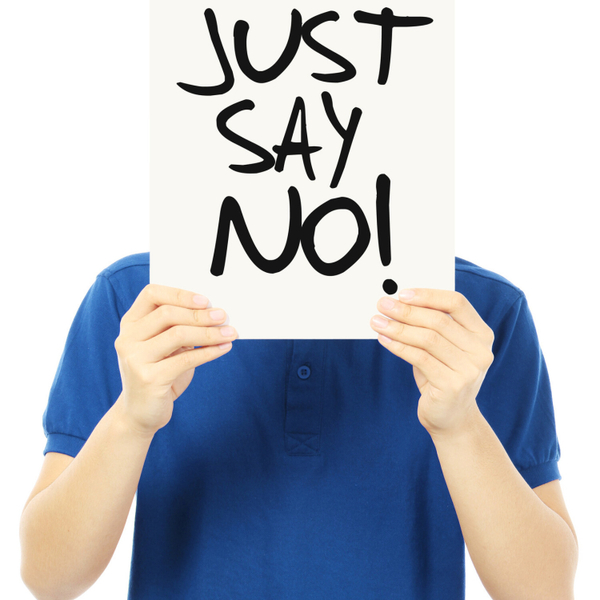
When was the last time you said no to someone!
Do you find it hard to say no and feel guilty when you do? Unfortunately, it is a common occurrence for many people. If you do are one of these people, it is essential that you learn how to say no and not feel guilty when you do.
Firstly, why is it hard for you to say no?
Is it because you are afraid of what other people will say or think of you? Are you worried that your refusal to help them could affect how they treat you and maybe even ruin your friendship or relationship?
The problem is if you keep on saying yes, many people will take advantage of you, and it will burn you out emotionally. This doesn’t mean that they are necessarily bad, but most people will take the least resistance path. So if you can always be relied on to say yes, you will be the one who is always assumed will do the things no one else wants to.
Remember that saying no doesn’t necessarily mean that you don’t want to help. Sometimes you can’t do it because you’re busy and have other tasks of your own to prioritize. So, don’t feel guilty when you have to say no.
Here are some tips on how you can say no and stop feeling guilty about it.
Offer An Alternative
When you can’t help by saying yes, one of the best ways you can do so is by giving an alternative solution. For instance, if you’re not available to accompany your best friend this week because your schedule is full, try to offer a time the following week. Suggesting an alternative is an excellent way to show that you want to help, even if your current situation won’t allow you.
Don’t Beat Around The Bush
If you have to say no, just say it, direct and short. In many situations, you should not be required to offer an explanation. The more excuses that you give, the more you give hope to the other person. You will also be giving them the power to continue asking you until you give in. Don’t beat around the bush and let them know that you really can’t do what they want right now.
Establish Boundaries Early On
One of the best things that will help you not feel guilty every time you have to say no is to set boundaries. Evaluate what you stand for, your role in the relationship, and why you are saying no. For instance, if you’ve set a price for your service and a prospective client offers you less than what you expect, you don’t have to feel obliged to accept. If it’s non-negotiable, politely decline because it’s outside of your pre-determined boundaries.
Be Assertive Without Being Aggressive
When you say you can’t or don’t want to fulfil a request, be firm about it even when they insist. You have to be assertive and take power by saying you’ll let them know when you can help them. You may have to repeat yourself several times, but stick to your basic answer. Try not to engage if they keep asking you questions or trying to negotiate with you to get you to comply.
Think About Yourself First
Most often, you’re not saying no just because you want to be contrary. Usually, you’re really swamped with work, or you’re too tired to do anything. So, it’s okay to think about yourself first. Sometimes you have to be selfish for your good. Before you say yes, think about how it can affect your personal situation, health, and well-being. You have to say no, especially when you have to take care of yourself first. If you are not well, how can you do more for others?
Don’t Apologize
It may take a lot of practice, but try not to apologize every time you have to say no to someone asking you for something. When you apologize, it makes you feel guilty even when there’s nothing to feel wrong about. Of course, you don’t have to be rude.
You may be finding it hard to say no when someone asks you anything, but learning to do so is an essential life skill. For the sake of your own mental health, you have to think about yourself first, what you stand for, and what your priorities are...... Learn more: https://mentalhealthtraining.info/
Mental Health Training
More information in https://mentalhealthtraining.info/